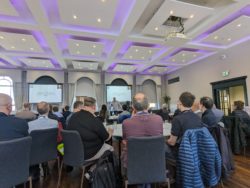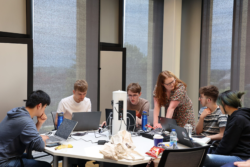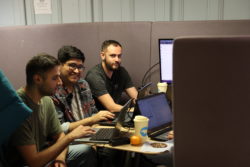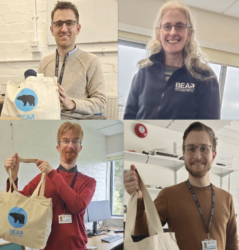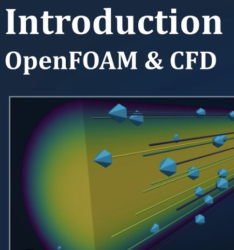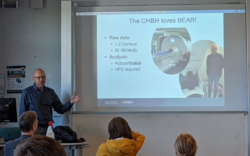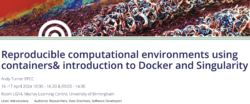This month we cover lots of past and future events, with blog posts on the BEAR Conference and Baskerville Showcase, together with details on a session at the Postgraduate Research Festival and the BioFAIR Roadshow. We also have some articles on life within the Advanced Research Computing team, to give you an insight into our … Continue reading “June BEAR Newsletter”
Tag: training
May BEAR Newsletter
We’re excited to announce the winner of our 2024 ‘IT Needs of Active Research’ survey prize, with the £500 Amazon voucher going to a researcher in Computer Science! Matt said, “I’m grateful for the opportunity to contribute to the improvement of our computing services. Winning the prize is an unexpected bonus!” We extend our thanks … Continue reading “May BEAR Newsletter”
From Coding ‘Hello World!’ Program to Developing Your Own Solver in OpenFOAM
OpenFOAM SIG Meeting – July 2024 Event Details Date: 3rd July 2024 – 2-4 pm. Venue: GC13, C Block Ground Floor, Met & Mat Building (G6), University of Birmingham. Organiser: Dr. Chandan Bose, Chair of BEAR Fluid Dynamics and OpenFOAM SIGs. Description In this SIG Meeting, participants will embark on a comprehensive learning experience transitioning from basic programming … Continue reading “From Coding ‘Hello World!’ Program to Developing Your Own Solver in OpenFOAM”
BEAR Challenge 2023: A whirlwind of GPUs, AI, pizza and future prospects
The BEAR Challenge 2023 was an exciting three day event that allowed students to access a national Tier 2 supercomputer – the Baskerville High-Performance Computing (HPC) system, as well as hearing about careers in the area from leading industry specialists. Students tackled real-world problems in Artificial Intelligence (AI) using Baskerville’s GPUs. Pros.pro BEAR Challenge team … Continue reading “BEAR Challenge 2023: A whirlwind of GPUs, AI, pizza and future prospects”
April BEAR Newsletter
Welcome to the BEAR Newsletter, bringing you the latest news from the BEAR team (Birmingham Environment for Academic Research), as well as other relevant computing and data-related news from both within the University of Birmingham and outside. April sees us welcome five new members to the Advanced Research Computing team! It is also a busy … Continue reading “April BEAR Newsletter”
Introduction to CFD using OpenFOAM
BEAR OpenFOAM SIG kick-off meeting May 2024 Chandan BoseChair of BEAR Fluid Dynamics and OpenFOAM SIGs Event Details Date: May 1st, 2024Time: 2-4 pmVenue: Room GC13 – Ground Floor of C Block (Building G6, Met and Mat) Description Are you curious about diving into the world of computational fluid dynamics (CFD) simulations? The “Introduction to CFD … Continue reading “Introduction to CFD using OpenFOAM”
March BEAR Newsletter
Welcome to the BEAR Newsletter, bringing you the latest news from the BEAR team (Birmingham Environment for Academic Research), as well as other relevant computing and data-related news from both within the University of Birmingham and outside. Exciting times ahead! Get ready to mark your calendars because the BEAR Conference 2024 is just around the … Continue reading “March BEAR Newsletter”
February BEAR newsletter
Welcome to the BEAR Newsletter, bringing you the latest news from the BEAR team (Birmingham Environment for Academic Research), as well as other relevant computing and data-related news from both within the University of Birmingham and outside. Every two years we run a survey to establish the IT needs of researchers, and this enables us … Continue reading “February BEAR newsletter”
R User Group Event – Data Visualisation Seminar!
In this month’s R User Group meeting, with speakers Laura Bravo Merodio and Jack Sullivan, we look at data visualisation with ggplot2, and tips and tricks for making plots accessible to all. Date Tuesday 6 February 2024 Time 12:00 – 13:00 Location HybridIn-person: Elm House, G08ONLINE: Teams Meeting Link AgendaChair: Katy IvisonTalk 1: “An Introduction To … Continue reading “R User Group Event – Data Visualisation Seminar!”
Bringing to BEAR – Creating a Challenge for the BEAR Challenge
This year June came around again and it’s BEAR Challenge time! This is an event we hold every year to try and introduce University of Birmingham undergraduates and masters’ students to the world of High-Performance Computing (HPC). This year we attracted ten groups of students from across the university from computer science, physics, maths, and … Continue reading “Bringing to BEAR – Creating a Challenge for the BEAR Challenge”

